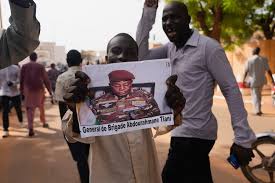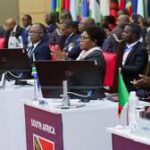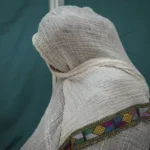In a significant turn of events, Niger’s junta leader, General Abdourahamane Tchiani, has officially been sworn in as the president of the country, appointed under a new law that establishes a five-year transition period. This development marks a critical moment in Niger’s political landscape following the military coup that ousted President Mohamed Bazoum in July 2023. The swearing-in ceremony took place in the capital, Niamey, amidst a swirl of controversy, regional tension, and hopes for stability.
The Military Coup: A Recap
Niger’s political turmoil began on July 26, 2023, when General Tchiani led a coup that ousted President Bazoum, who had been in office since April 2021. The coup was justified by the junta on the grounds of rampant insecurity, particularly stemming from terrorist threats posed by extremist groups in the Sahel region. The international community condemned the coup, with the Economic Community of West African States (ECOWAS) imposing sanctions and calling for a return to constitutional order.
Transition Period Framework
Under the recently adopted law, Tchiani’s government has outlined a five-year transitional period aimed at restoring democratic governance. The law stipulates that a National Council of Transition will oversee the governance process, and a new constitution will be drafted within this timeframe. The junta has expressed intentions to include civilian representatives in the governance structure, thereby attempting to legitimize its rule and appease domestic and international calls for a return to democracy.
International Reactions
The ousting of Bazoum and the subsequent swearing-in of Tchiani have raised concerns beyond Niger’s borders. ECOWAS, which has a history of intervening in member states that experience coups, has signaled its discontent with the junta’s actions. In recent meetings, ECOWAS leaders reiterated their demands for a timeline for elections and the return to civilian rule. However, Tchiani’s administration has struck a defiant tone, vowing to remain in power until the situation is “fully stable” and promising a roadmap to democratic elections.
International voices, including the United Nations and the African Union, have urged peace, stability, and a rapid return to democratic governance. The junta’s legitimacy is being questioned, particularly as reports of human rights abuses and crackdowns on dissent continue to emerge. Activists within Niger fear the transition may lack transparency and accountability.
Public Sentiment
Domestically, the reaction to Tchiani’s ascension has been mixed. While some citizens view the military leadership as a necessary response to the insecurity plaguing the nation, others express skepticism about the junta’s commitment to returning to democracy. Street protests in support of the coup have been met with equal demonstrations calling for the restoration of civilian rule. The polarization of public sentiment reflects the broader tensions within Niger, embroiled in a lengthy struggle against extremist violence.
The Road Ahead
As Tchiani assumes his role as president, the future trajectory of Niger remains uncertain. The junta faces considerable challenges: restoring security in a nation grappling with insurgency, fostering economic recovery, and, most importantly, fulfilling commitments toward an inclusive transition to democratic governance.
The next five years will be pivotal, not only for Niger but also for the stability of the wider Sahel region, significantly impacted by the rising tide of military coups and the associated challenges of governance. How Tchiani navigates this transition will determine both his legacy and the potential return to democratic norms in Niger.
In the midst of political uncertainty, one thing is clear—Niger’s journey through this transitional period will be closely watched both regionally and internationally, with implications extending far beyond its borders. The words of General Tchiani promising a “stable and secure” Niger will have to be matched by action for true peace and stability to take root.
Email Us on editorial@nnafrica.com













